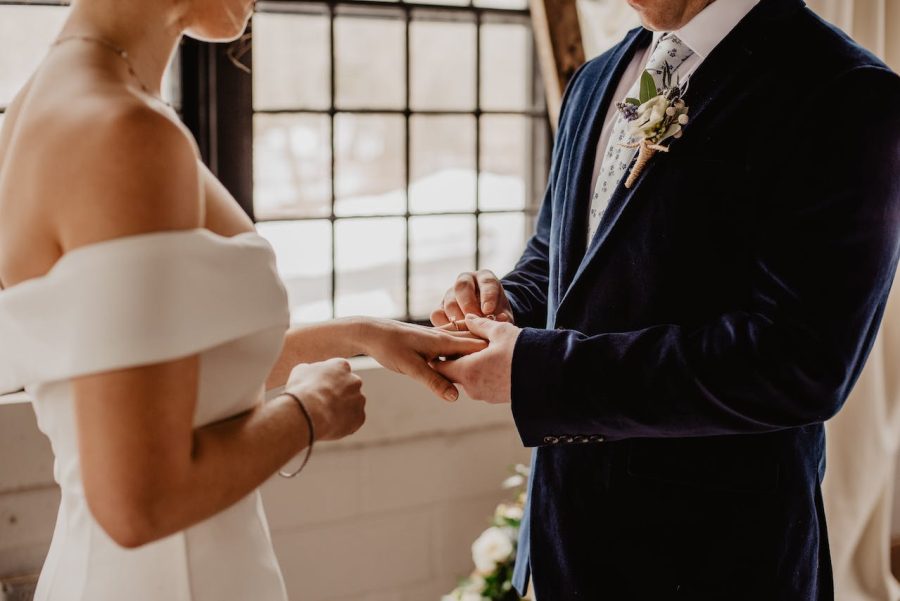Quiz: When Will I Get Married?

“Will you marry me?” – these four words can change a life in an instant. But when will this moment come? And how does one prepare for it? The quiz “When Will I Get Married?” touches the deepest strings of our soul, making us think not only about the wedding date but also about our readiness for a serious relationship, our values, and life goals. Let’s embark on a journey through the labyrinths of love, marriage, and self-discovery.
Why Are We So Fascinated by the Wedding Date?
Human nature is such that we always strive to look into the future, especially when it comes to such an important life stage as marriage. This desire is rooted in ancient times when people turned to oracles and fortune-tellers to learn their fate. Today, mystical rituals have been replaced by psychological tests and quizzes, which, although not claiming absolute accuracy, still provide food for thought.
Interest in the wedding date can be explained by several factors. First, it’s a natural desire to plan one’s life. Knowing approximate timelines helps in building a career, financial plans, and personal goals. Second, it’s social pressure. Society, despite all the changes, still views marriage as an important indicator of success and personal maturity. And finally, there’s the romantic aspect – dreams of the perfect partner and a magical ceremony are common to many people from a young age.
How Can a Quiz Help in Your Marital Reflections?
The “When Will I Get Married?” quiz is not just a set of random questions. A well-designed test is based on psychological research and statistical data. It can touch on various aspects of your life: from personality traits and life values to career ambitions and attitudes towards family life.
Taking such a quiz, you involuntarily think about your priorities and readiness for a serious relationship. Questions may concern your environment, relationships with parents, financial stability, and emotional maturity. All these factors play an important role in building a strong marriage.
Moreover, the test results can become a starting point for an important conversation with a partner. They can reveal areas that require additional attention or discussion. For example, if the test shows that you’re not ready for marriage due to financial problems, this can be a stimulus for a more serious approach to budget planning and savings.
However, it’s important to remember that a quiz is not a prophecy, but rather a tool for self-analysis. It cannot take into account all the nuances of your life and relationships. Therefore, the results should be perceived as a reason for reflection, not as a guide to action.

How Has the Age of Marriage Changed Over Time?
It’s interesting to trace how the average age of marriage has changed throughout history. This will help us better understand why the question “When will I get married?” so worries modern people.
In ancient societies, marriage was often viewed as an economic or political union. People married very early, often in their teens. For example, in Ancient Rome, girls got married at 12-14 years old, and young men married at 14-16 years old.
In the Middle Ages, the situation changed slightly. The church began to regulate marital relations, setting a minimum age for marriage: 12 years for girls and 14 for young men. However, the actual age of marriage was higher, especially among commoners who needed to accumulate funds to start a family.
With the beginning of the industrial revolution, the age of marriage began to rise. People began to live longer, get an education, build a career. In the 19th century, the average age of first marriage in Europe was about 26 years for men and 23 years for women.
In the 20th century, the trend towards later marriages continued, especially after World War II. Women gained more rights and opportunities, which led to a change in their role in society and family. By the end of the 20th century, the average age of first marriage in developed countries reached 28-30 years for women and 30-32 years for men.
Today we observe a further increase in the age of marriage. In some European countries, the average age of first marriage already exceeds 30 years for women and 32 years for men. This is due to many factors: long education, career ambitions, the desire to achieve financial stability, changes in social norms and values.
Thus, the question “When will I get married?” acquires special relevance in modern society, where there are no clear age limits for starting a family, and the decision to marry becomes more conscious and individual.

Weighing the Pros and Cons of Early and Late Marriage
Early Marriage
An early marriage is usually considered a union concluded before the age of 25. Such a decision has its advantages and disadvantages.
Pros of early marriage:
- More energy and flexibility. Young people adapt more easily to living together and new responsibilities.
- The opportunity to “grow together”. The couple forms common values and habits from a young age.
- More time to start a family. This is especially important for couples planning to have several children.
- Support at the beginning of a career. Spouses can help each other in professional development.
Cons of early marriage:
- Lack of life experience. Young spouses may not be ready for serious life challenges.
- Financial instability. At the beginning of a career, incomes are usually low, which can create additional tension in the relationship.
- The risk of “outgrowing” each other. As they mature, the interests and goals of spouses may diverge.
- Limitation of personal growth. Early marriage can hinder the realization of some individual goals and ambitions.
Late Marriage
A late marriage is usually considered a union concluded after 35 years. This decision also has its peculiarities.
Pros of late marriage:
- Financial stability. By this age, many have already reached a certain level in their career and have savings.
- Emotional maturity. People better understand themselves and their needs, which helps in building relationships.
- Conscious choice of partner. Having more relationship experience, it’s easier to understand what qualities are important in a spouse.
- Independence. Both partners have already established themselves as individuals and can build relationships on equal terms.
Cons of late marriage:
- Difficulties with childbearing. This especially concerns women, whose fertility decreases with age.
- Established habits. It can be more difficult to adapt to living together and make compromises.
- High expectations. The more life experience, the higher the requirements for a partner, which can create tension.
- Less time for a “joint future”. This can cause a feeling of missed opportunities.
It’s important to understand that there is no “ideal” age for marriage. Each couple is unique, and the decision to marry should be made based on personal circumstances, readiness, and maturity of both partners.

Debunking Popular Myths and Superstitions About Marriage
The “When Will I Get Married?” quiz often touches on various beliefs and omens associated with marriage. However, many of them are nothing more than myths. Let’s look at some of them:
- Myth: “If you don’t get married by 30, you’ll remain single forever” Reality: This outdated notion has no basis. Many people find their better half at a mature age and create strong families.
- Myth: “A leap year is a bad time for a wedding” Reality: There is no statistical data confirming that marriages concluded in a leap year are less successful.
- Myth: “To get married, you need to catch the bride’s bouquet” Reality: This is just a fun tradition that has no real impact on your personal life.
- Myth: “Long-term cohabitation before marriage increases the chances of divorce” Reality: Modern research shows that living together before marriage can, on the contrary, strengthen relationships, allowing the couple to get to know each other better.
- Myth: “Marriage is the end of freedom and personal life” Reality: Healthy relationships in marriage imply a balance between personal space and spending time together.
Instead of relying on myths and superstitions, it’s important to focus on real factors affecting the success of marriage: mutual understanding, shared values, ability to resolve conflicts, financial literacy, and emotional maturity.
In conclusion, it’s worth noting that the “When Will I Get Married?” quiz is an exciting tool for self-knowledge, but not a guide to action. It can help you better understand yourself and your relationships, but the decision to marry should be made consciously, taking into account many factors.
Remember that every love story is unique, and there is no universal recipe for a happy marriage or ideal time to conclude it. The main thing is mutual love, respect, and willingness to work on the relationship, regardless of the age at which you decide to tie the knot.
How to Play?
Click the "Start Quiz" button and answer each quiz question honestly. There are no right or wrong answers. You may encounter multiple-choice questions or statements to rate on a scale of agreement. Once you finish the quiz, you'll receive results that provide insight into your personality traits, including strengths and weaknesses. Use this information to increase self-awareness and make positive changes.
How many questions does this quiz have?
15 Questions
How long does it take to complete this quiz?
4 Minutes
Questions Overview
- 1-2 partners
- 3-5 partners
- 6-9 partners
- 10 or more partners
- Before 25
- 25-35
- After 35
- Age doesn't matter
- Small ceremony with close ones
- Party with friends and family
- Lavish celebration like a royal wedding
- Just paperwork, no ceremony
- At home or visiting relatives
- Trip around Europe
- Exotic island getaway
- Nowhere, it's a waste of money
- Mom
- Dad
- Equally close with both
- Not particularly close with either
- Want them as early as possible
- Want them at a reasonable age
- Children are optional
- Definitely don't want kids
- With parents
- Separately but near parents
- In a different city from parents
- In a different country from parents
- Just one for life
- Maximum two marriages
- Several if it doesn't work out
- None, don't see the point of marriage
- Love and understanding
- Stability and common interests
- Success and financial security
- Personal independence
- Married
- In relationships but not married
- Mostly single
- Avoid serious relationships
- Moonlit walks, candles at night
- Traveling together, surprises
- Expensive gifts, elite restaurants
- Romance is not a priority
- Practically every month
- A few times a year
- Very rarely, 1-2 in a lifetime
- Never been to someone else's wedding
- No, can live with parents
- Would be nice but not required
- Absolutely
- I already have my own housing
- Positive, will strive for it
- Neutral, if I meet the right person
- Skeptical, not sure it's necessary
- Negative, don't see the point
- Within the first year
- After 2-4 years
- After 5+ years
- No interest in getting married





